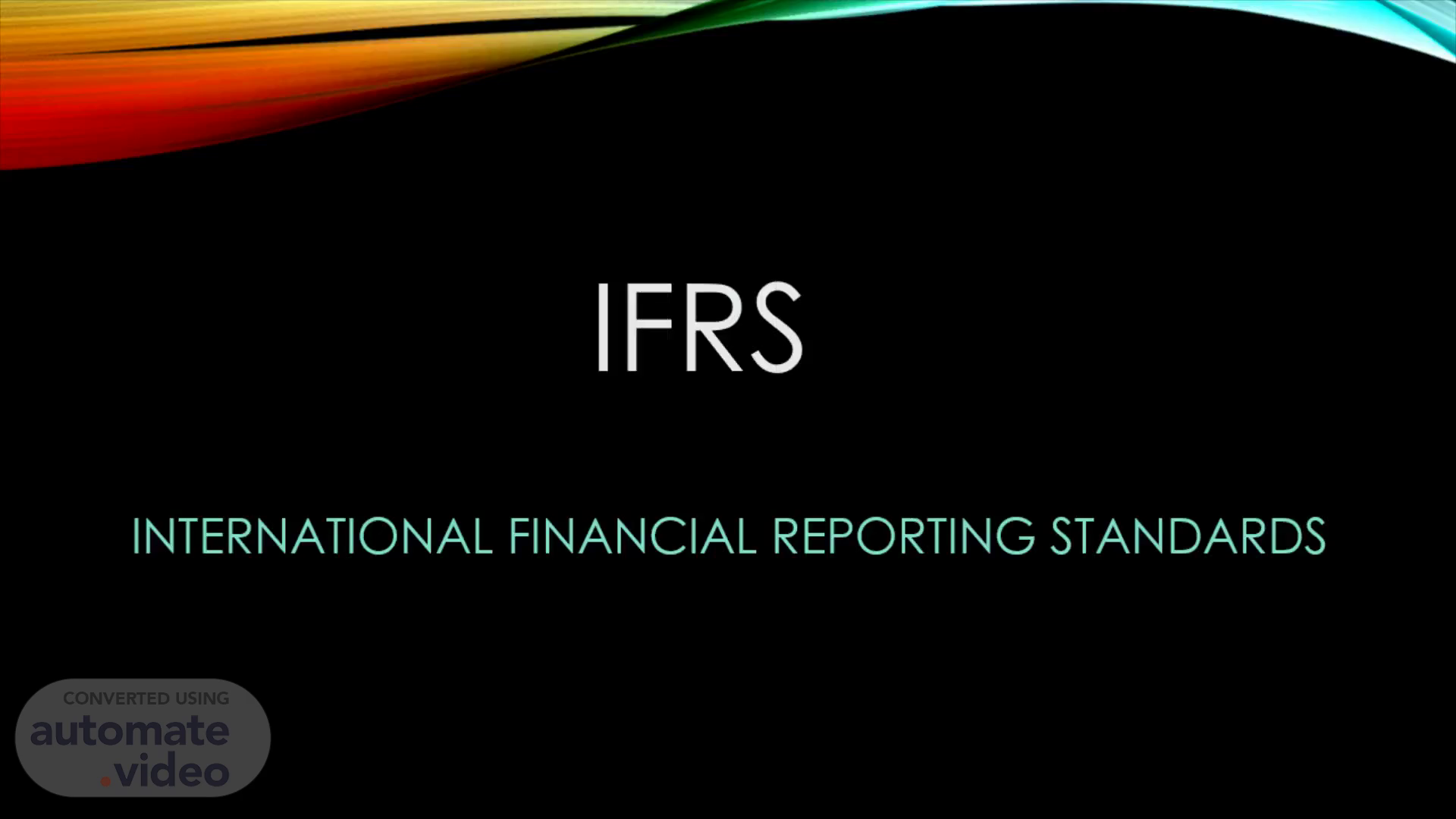Page 1 (0s)
IFRS. INTERNATIONAL FINANCIAL REPORTING STANDARDS.
Page 2 (6s)
. WHAT ARE INTERNATIONAL FINANCIAL REPORTING STANDARDS (IFRS)?.
Page 3 (30s)
UNDERSTANDING INTERNATIONAL FINANCIAL REPORTING STANDARDS (IFRS).
Page 4 (1m 1s)
HISTORY OF IFRS. IFRS originated in the Europian Union with the intention of making business affairs and accounts accessibleacross the continent. It was quickly adopted as a common accounting language. Alyhough the US and some other countries don’t use IFRS, currently 166 jurisdictions do, making IFRS the most-used set of standards globally..
Page 5 (1m 29s)
STANDARD IFRS REQUIREMENTS:. IFRS covers a range of ccounting activities. There are certain aspects of business practice for which IFRS set mandatory rules. STATEMENT OF FIANCIAL POSITION: This is the balance sheet. IFRS influences the ways in which the components of a balance sheet are reported. STATEMENT OF COMPREHENSIVE INCOME: This can take the form of one statement or be separated into a profit and loss statement of other income, including property and equipment. STATEMENT OF CHANGES IN EQUITY: Also known as a statement of retained earnings, this documents the company’s change in earnings or profit for the given financial period. STATEMENT OF CASH FLOWS: This report summarizes the ompany’s financial transactions inth given period, separating cash flow into operations, investing, and financing..
Page 6 (2m 2s)
WHY IS IFRS IMPORTANT:. IFRS fosters transparency and trust in the global financial markets and the companies that list their shares on them. If such standards did not exist, investors would be more reluctant to believe the financial statements and other information presented to them by companies. Without that trust , we might see fewer transactions and a less robust economy. IFRS also helps investors analyse companies by making it easier to perform “apples to apples” comparision between one company and other and for fundamental analysis of a company’s performance..
